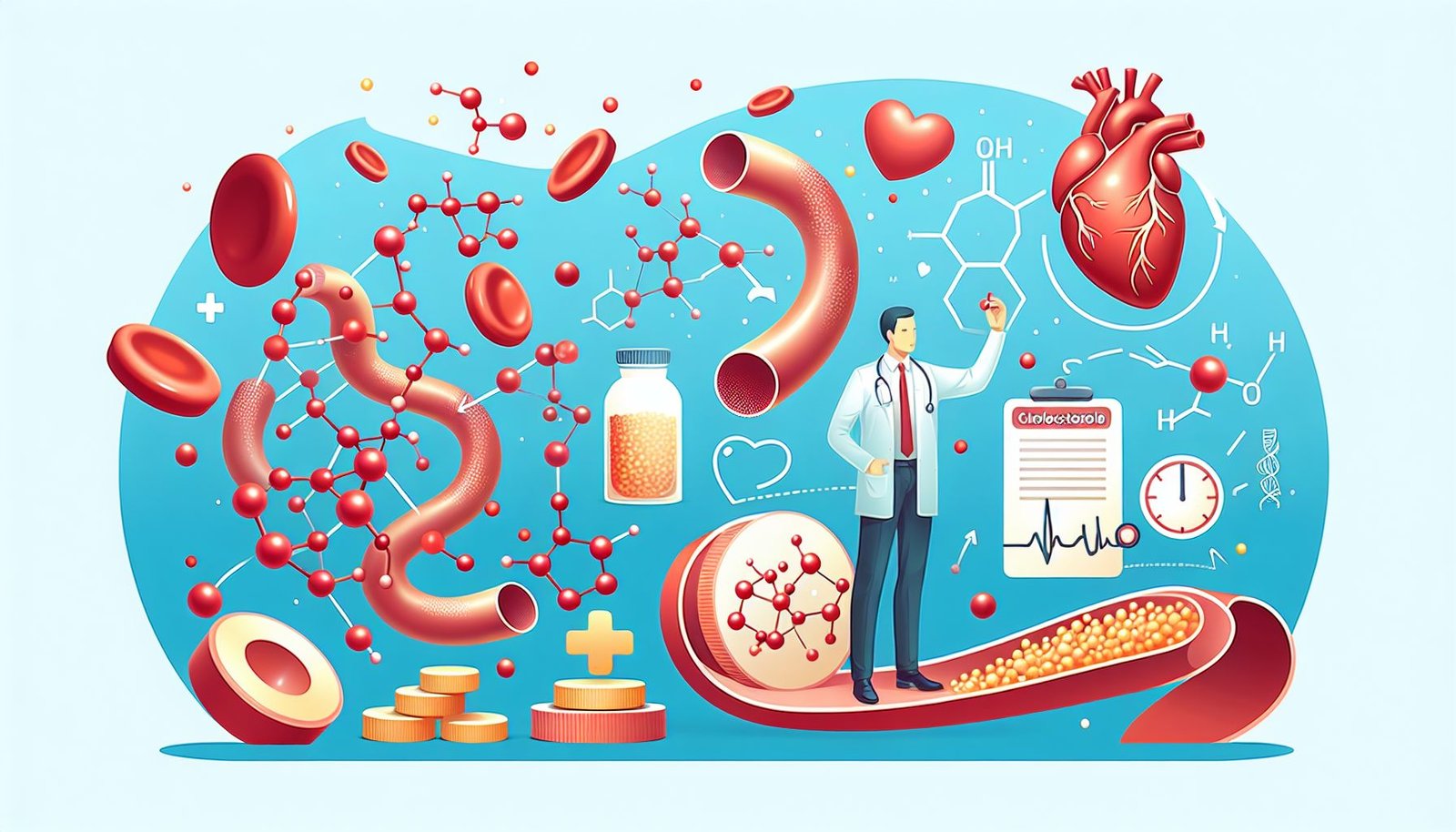
Cholesterol: Essential for Life, Critical to Manage
Cholesterol is a waxy, fat-like substance found in every cell of the body. It plays a critical role in producing hormones, vitamin D, and substances that help digest foods. While cholesterol is essential for maintaining good health, an imbalance can lead to cardiovascular diseases. Understanding cholesterol and managing its levels is crucial for maintaining a healthy lifestyle.
What is Cholesterol?
Cholesterol is produced in the liver and also obtained from dietary sources like meat, poultry, and full-fat dairy products. It is transported through the bloodstream by lipoproteins, which are categorized into two main types:
– Low-Density Lipoprotein (LDL): Often referred to as “bad” cholesterol, high levels of LDL can lead to the buildup of cholesterol in arteries, increasing the risk of heart disease and stroke.
– High-Density Lipoprotein (HDL): Known as “good” cholesterol, HDL helps transport cholesterol away from the arteries and back to the liver, where it is processed and removed from the body.
Mechanism of Action
Cholesterol’s role in the body is multifaceted. It helps form cell membranes, provides insulation for nerves, and is a precursor to steroid hormones. However, when LDL cholesterol accumulates on artery walls, it forms plaques that can narrow arteries and limit blood flow, a condition known as atherosclerosis. Conversely, HDL cholesterol helps remove cholesterol from the bloodstream, reducing the risk of plaque formation.
Indications for Monitoring Cholesterol Levels
Regular monitoring of cholesterol levels is recommended, especially for individuals with risk factors such as:
– Family history of heart disease
– Smoking
– Obesity
– High blood pressure
– Diabetes
According to the American Heart Association, adults aged 20 and older should have their cholesterol levels checked every four to six years. More frequent testing may be necessary for those with cardiovascular risk factors.
Possible Side Effects of High Cholesterol
High cholesterol often has no symptoms, making regular screenings important. If left unmanaged, it can lead to:
– Heart attack
– Stroke
– Peripheral artery disease
Managing Cholesterol: Lifestyle and Medication
There are several strategies to manage cholesterol levels effectively:
1. Lifestyle Changes
– Diet: Adopt a heart-healthy diet rich in fruits, vegetables, whole grains, and lean proteins. Limit intake of saturated fats, trans fats, and cholesterol-rich foods.
– Exercise: Engage in at least 150 minutes of moderate aerobic activity or 75 minutes of vigorous activity each week.
– Weight Management: Achieve and maintain a healthy weight to improve cholesterol levels and overall cardiovascular health.
– Smoking Cessation: Quitting smoking can improve HDL cholesterol and reduce cardiovascular risks.
2. Medications
When lifestyle changes alone are not sufficient, medications may be prescribed. Common drugs include:
– Statins: Lower LDL cholesterol by blocking a substance your liver needs to make cholesterol.
– Bile Acid Sequestrants: Reduce cholesterol by binding to bile acids.
– Cholesterol Absorption Inhibitors: Decrease the amount of cholesterol absorbed from food.
Recommended Dosages
Dosages for cholesterol medications vary based on individual health needs and should be determined by a healthcare provider. It is critical to follow prescribed instructions and regularly consult with a healthcare professional to monitor progress and adjust treatment as necessary.
Expert Opinions on Cholesterol Management
Dr. Jane Smith, a cardiologist, emphasizes, “Managing cholesterol is about balancing lifestyle changes and, when necessary, medications. A personalized approach, considering individual risks and health status, is essential for effective management.”
Pharmacist John Doe adds, “Patients should be aware of potential side effects of cholesterol medications, such as muscle pain from statins, and discuss these with their healthcare provider. Regular check-ups ensure safe and effective cholesterol management.”
Conclusion
Understanding and managing cholesterol is crucial for preventing cardiovascular diseases. By making informed lifestyle choices and utilizing medications when necessary, individuals can maintain healthy cholesterol levels. For more information on managing cholesterol and to explore treatment options, visit our recommended site.
FAQs
Q: Can high cholesterol be hereditary?
A: Yes, familial hypercholesterolemia is a genetic condition that results in high cholesterol levels.
Q: Are there natural supplements to lower cholesterol?
A: Some natural supplements, like omega-3 fatty acids, niacin, and soluble fiber, may help reduce cholesterol levels. Always consult with a healthcare provider before starting any supplements.
Q: How often should I check my cholesterol levels?
A: Adults should have their cholesterol checked every four to six years, or more frequently if they have risk factors for heart disease.
For further reading and resources, consider visiting the Centers for Disease Control and Prevention (CDC) and the American Heart Association websites.